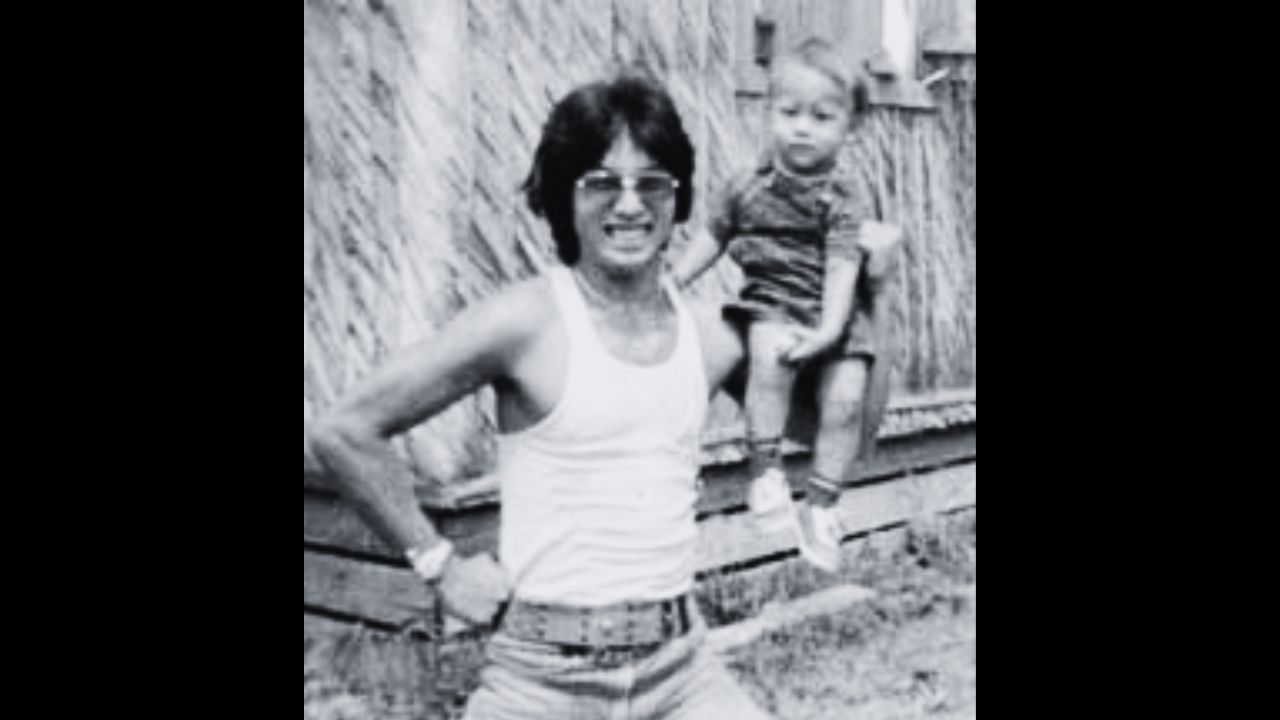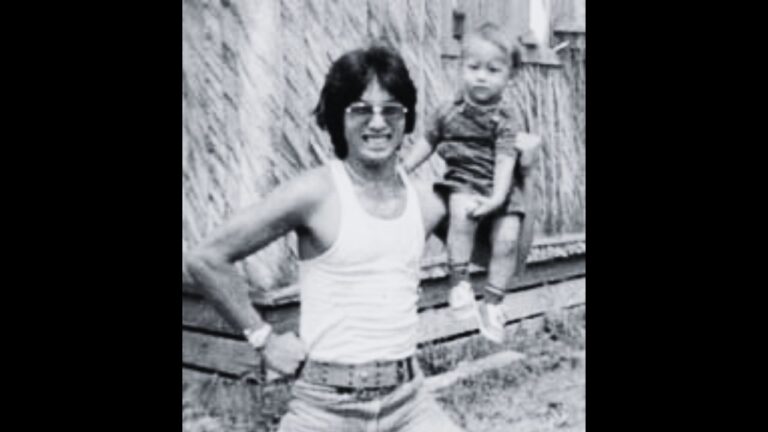Our journey begins with the tale of an extraordinary individual, Lew Eric Jones, a name that echoes through history. Born in South Korea in 1956, Jones’s life took an unexpected twist when he was adopted by an American couple, Jim and Marceline Jones. His narrative, however, is no ordinary adoption story. His adoptive parents were the founders of the Peoples Temple, a new religious movement that would later gain infamous notoriety.
Early Life and Adoption
On November 23, 1956, a baby boy was born in South Korea. Two years later, in 1958, that boy was adopted by Jim and Marceline Jones and was given the name Lew Eric Jones. The Jones family, based in the United States, was no ordinary family. Jim Jones, Lew’s adoptive father, was a charismatic individual with grand ambitions, and Marceline, his adoptive mother, was a nurturing soul with a deep sense of compassion. Together, they built a home that was a melting pot of different cultures and ethnicities.
From a young age, Lew was immersed in a unique environment. His adoptive parents had a vision of creating a utopian society, free from the shackles of racial and social inequality. This vision was the bedrock on which the Peoples Temple, their religious movement, was founded. Lew’s early years were, therefore, deeply influenced by these ideologies.
Family Background
As an adopted son, Lew was part of a family that was as diverse as it was unconventional. In addition to their biological son, Jim and Marceline Jones adopted several children of different ethnicities, creating what they referred to as a ‘rainbow family’. This was an embodiment of their belief in racial equality and their desire to create a world where the color of one’s skin did not define one’s worth.
Jim Jones, Lew’s adoptive father, was a charismatic leader with a radical vision. Marceline Jones, his adoptive mother, was a nurse by profession and had a deep sense of empathy for the less fortunate. Their combined influence played a significant role in shaping Lew’s outlook on life and society.
Role in Peoples Temple
The Peoples Temple was not just a religious movement; it was a social experiment and a radical attempt at creating a utopian society. As an adopted son of Jim and Marceline Jones, Lew Eric Jones was deeply involved in the temple from its inception. The Temple, initially founded in Indianapolis, Indiana, was a tight-knit community where everyone had a role to play.

Lew, along with his adoptive family, was among the founding members of the Peoples Temple. From a young age, he was involved in various activities and initiatives of the Temple. The Temple’s teachings and principles, deeply rooted in social justice and equality, significantly influenced his worldview. His life, however, was about to take a drastic turn as the family moved to Guyana in South America, marking the beginning of a new, tumultuous chapter in their lives.
Life in Jonestown
In March 1977, Lew Eric Jones, along with his adoptive family, embarked on a journey that would change their lives forever. They moved to Jonestown, Guyana, a community established by the Peoples Temple under Jim Jones’s leadership. This new home was intended to be their utopia, an embodiment of the ideals they had long championed.
Jonestown was a unique community, built from scratch in the middle of the Guyanese jungle. Here, the members of the Peoples Temple sought to create a society founded on the principles of equality, communal living, and self-sufficiency. It was in this extraordinary setting that Lew grew into adulthood, deeply involved in the day-to-day operations of Jonestown.
Personal Life and Family
While residing in Jonestown, Lew started his own family. In April 1977, he welcomed a son, marking a new chapter in his life. This joyful event was a glimmer of normalcy and happiness amidst the often intense and demanding life in Jonestown.
His family life, however, was far from conventional. Living in a community like Jonestown meant that individual and private family life was often intertwined with the collective life of the community. Every aspect of their lives, from work to childcare, was shared with their fellow community members. Despite these unusual circumstances, Lew’s commitment to the ideals of the Peoples Temple remained steadfast.
Involvement in Jonestown Operations
As a founding member of the Peoples Temple and a resident of Jonestown, Lew Eric Jones played an active role in the functioning of the community. He participated in the various activities and initiatives aimed at maintaining and improving the community’s living conditions.
Jonestown was designed to be a self-sufficient community, and everyone had a role to play in its functioning. As such, Lew, like all other members, took part in the day-to-day operations of the community. His responsibilities would have included everything from farming and construction to teaching and healthcare. Lew’s life in Jonestown was thus marked by hard work, communal living, and a shared vision of a better world.
Despite the hardships and challenges, Lew, like many others, believed in the vision of Jonestown and dedicated his life to realizing it. He was an integral part of this ambitious social experiment, living out the principles of equality and communal living that the Peoples Temple had always advocated for.
Death and Jonestown Massacre
On November 18, 1978, an event occurred that would forever be ingrained in history as one of the most tragic mass suicides. This event took place in the isolated community of Jonestown, Guyana where Lew Eric Jones and his family lived. It was on this day that Lew, at the tender age of 21, lost his life along with over 900 other members of the Peoples Temple.
The man behind this tragic event was none other than Lew’s adoptive father, Jim Jones. As the charismatic leader of the Peoples Temple, he ordered what he termed a “”revolutionary suicide.”” This act was carried out by the consumption of a cyanide-laced drink, a horrific end to the utopian dream that had brought so many to Jonestown.
Lew Eric Jones, who had been deeply involved in the activities of the Peoples Temple and the running of Jonestown, was one of those who succumbed to this tragic fate. His life, which was deeply intertwined with the Peoples Temple from an early age, ended abruptly and tragically, a victim of the very ideology he had grown up espousing.
Burial and Memorial
Following the tragic event at Jonestown, the bodies of the victims were brought back to the United States. Lew Eric Jones was laid to rest at the Earlham Cemetery in Richmond, Indiana, a final resting place far removed from the jungles of Guyana where his life had ended.
Today, the gravesite serves as a poignant reminder of the tragic events of Jonestown and the lives lost. Each year, families, friends, and those interested in the history of the Peoples Temple visit the cemetery to pay their respects. The grave of Lew Eric Jones, like those of his fellow Peoples Temple members, stands as a silent testament to a life that was shaped and ultimately ended by the Peoples Temple.
Conclusion
The life of Lew Eric Jones is one that is intricately tied to the history of the Peoples Temple. From his adoption by Jim and Marceline Jones to his involvement in the establishment of Jonestown, Lew’s life was deeply influenced by the ideologies of the Peoples Temple. His tragic death at Jonestown, along with hundreds of other members, is a stark reminder of the dark side of such utopian visions.
As we delve into the history of Lew Eric Jones, we find a life that was filled with promise but ended in tragedy. Yet, his story serves as a powerful lesson about the dangers of blind faith and the devastating consequences it can lead to. In remembering Lew Eric Jones, we remember not only his life but also the lessons his life story imparts to us.

